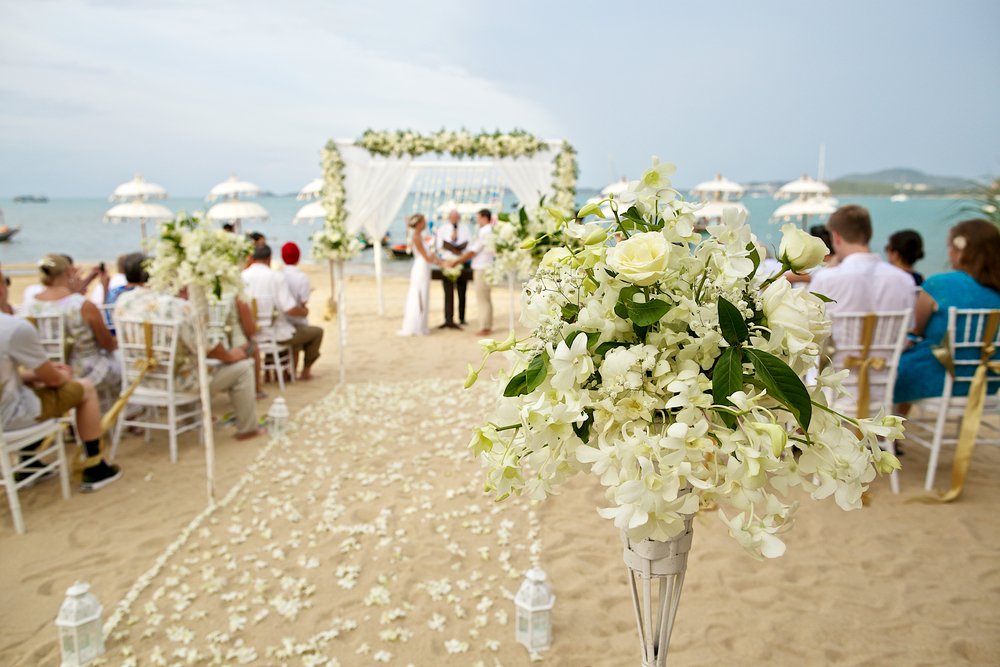RSVP Etiquette for Non-Responses: Essential Tips
RSVPs are becoming increasingly difficult to attain these days, with many people failing to respond or make a commitment. However, it is important to practice proper RSVP etiquette to show courtesy to your hosts. Emily Post, the go-to expert on etiquette, advises promptly responding to invitations and using the indicated method of response. It is important to stick to your initial response unless there are unavoidable circumstances. Remember to always say “thank you” to your hosts before leaving the event.
Key Takeaways:
- Proper RSVP etiquette is crucial in showing courtesy to your hosts.
- Promptly respond to invitations and use the indicated method of response.
- Stick to your initial response unless there are unavoidable circumstances.
- Always say “thank you” to your hosts before leaving the event.
- RSVPs allow hosts to plan and prepare for an event, so it is important to respond in a timely manner.
Understanding the Importance of RSVPs
RSPVs are more than just a polite gesture; they play a significant role in event planning and execution. By promptly responding to an invitation, you demonstrate your commitment and respect for the host’s efforts. Your RSVP allows the host to make necessary arrangements, such as seating, food, and accommodations. It also helps to create a smooth and enjoyable experience for all guests.
Without accurate RSVPs, hosts may encounter difficulties in organizing the event. They need to know how many people to expect in order to make informed decisions, plan appropriately, and ensure that everyone is accommodated comfortably. By delivering your RSVP in a timely manner, you enable the host to address any logistical challenges and create a memorable event for all attendees.
“RSVP” stands for “Répondez s’il vous plaît,” which is French for “Please respond.” This simple act of responding to an invitation reflects your consideration for the host’s efforts and helps to build positive relationships. It demonstrates your appreciation for being included and contributes to the success of the occasion. Remember, a prompt RSVP not only benefits the host but also sets a precedent for courteous behavior in social interactions.
| The Significance of RSVPs | Why RSVP is Important |
|---|---|
| Allows hosts to plan and prepare for the event | Demonstrates commitment and respect for the host |
| Enables proper seating arrangements | Helps to create a smooth and enjoyable event for all guests |
| Aids in determining food and beverage quantities | Builds positive relationships and sets a precedent for courteous behavior |
Remember, your RSVP is more than just a response; it is a way of showing gratitude and consideration to your host. By promptly indicating your attendance or regrets, you contribute to the overall success and enjoyment of the event.
Understanding the Importance of Timely RSVPs
Responding to an invitation in a timely manner is crucial for effective event planning. Hosts need to know the number of attendees well in advance to make appropriate arrangements. By promptly providing your RSVP, you help hosts avoid unnecessary stress and ensure a successful event.
Keep in mind that RSVP deadlines are set for a reason. They allow the host to finalize preparations and make necessary adjustments. Delaying your response can create inconvenience and additional work for the host, as they may need to follow up with guests individually to confirm attendance or make alternative arrangements.
- Respond as soon as you receive the invitation to show your enthusiasm and respect for the host’s efforts.
- If there is a specified deadline, aim to send your response before that date to give the host ample time to plan.
- If you are unsure about your availability, inform the host and let them know you will confirm as soon as possible. This allows the host to make an informed decision and plan accordingly.
By understanding and respecting the importance of timely RSVPs, you contribute to the seamless execution of events and foster positive social interactions.
Different Types of RSVPs
When it comes to responding to RSVPs, there are various types of invitations that you may receive. Each type requires a different method of response, so it’s essential to follow the provided instructions and respond accordingly. Here are some common types of RSVPs and how to respond to them:
Mailed Invitations with RSVP Cards
For formal events, such as weddings or fundraisers, you may receive a mailed invitation with an RSVP card included. In this case, fill out the RSVP card with your response and return it to the provided address by the specified deadline. Make sure to include the requested information, such as the number of guests attending and any dietary restrictions.
Telephone Invitations
Sometimes, you may receive an invitation over the phone. In this case, respond to the invitation on the spot. Let the host know whether you will be attending or not, and provide any necessary details they may need, such as your name and dietary preferences. It’s important to be polite and clear when responding to telephone invitations.
Electronic RSVP Options
In the digital age, electronic RSVP options have become increasingly popular. You may receive invitations via email, online platforms, or social media. Follow the provided instructions and respond using the designated electronic method. Make sure to include all necessary details, such as the number of guests attending and any additional information requested by the host.
To sum up, there are different ways to respond to RSVPs depending on the type of invitation received. Whether it’s a mailed invitation with an RSVP card, a telephone invitation, or an electronic invitation, it’s important to follow the provided instructions and respond in a timely manner. By doing so, you can ensure that you communicate your attendance or regrets to the host effectively.
Tips for Timely RSVPs
Responding to an RSVP in a timely manner is essential to show respect and consideration to your hosts. Whether you are attending an event or declining the invitation, here are some important tips to keep in mind:
- Be prompt: It is best to respond to an RSVP as soon as possible, even if there is a specified deadline. This allows the host to accurately plan and make necessary arrangements. Respond within a few days of receiving a mailed invitation, and for telephone or in-person invitations, provide your response as soon as you can.
- Stick to the deadline: If there is a specified RSVP deadline, make sure to honor it. This allows the host to finalize their guest list and make necessary preparations. Responding on time shows your commitment and respect for the event.
- Communicate changes: If your availability changes after you have already responded, inform the host immediately. If you initially declined but later discover that you can attend, it is courteous to let the host know. However, avoid changing your RSVP for non-emergency social plans, as it can inconvenience the host and disrupt their preparations.
By following these tips, you can ensure that your hosts have a smooth and stress-free experience in planning their event, while also demonstrating your appreciation for the invitation.
| Benefits of Timely RSVPs | Consequences of Late or No RSVPs |
|---|---|
| Helps hosts plan and make necessary arrangements | Causes inconvenience and discomfort for the host and other guests |
| Shows enthusiasm and respect for the host’s efforts in organizing the event | Leaves the host uncertain and unable to finalize their guest list |
| Allows for proper seating arrangements and catering | Creates difficulties in arranging appropriate accommodations |
Remember, responding to an RSVP in a timely manner is not only a matter of etiquette, but also a way of showing consideration and gratitude towards your hosts. Make it a priority to respond promptly and honor any established deadlines, as this will contribute to a more enjoyable and smoothly organized event for everyone involved.
Declining an Invitation Politely
There may be instances when you are unable to attend an event, and it is important to decline the invitation politely. Remember, declining an invitation is considerate and shows respect for the host’s efforts in organizing the event. Here are some tips on how to politely decline an RSVP:
- Keep your response brief: When declining an invitation, you don’t need to provide excessive details. A simple, concise response expressing your regrets is sufficient. For example, “Thank you for the invitation, but unfortunately, I won’t be able to attend.”
- Apologize for your inability to attend: It is courteous to express your regret for not being able to join the event. You can include a brief apology in your response, such as “I apologize for any inconvenience caused.”
- Thank the host: Showing appreciation for the invitation is important. End your response by thanking the host for including you, such as “Thank you for thinking of me. I hope you have a wonderful event.”
By declining an invitation politely, you maintain good relationships with the host and demonstrate your understanding of proper RSVP etiquette.
Remember, it is better to decline an invitation than to be a “no show.” Not responding or ignoring the invitation can cause inconvenience for the host and disrupt their event planning. A polite decline allows the host to make necessary adjustments and ensures a smoother experience for all involved.
Example Response:
Dear [Host’s Name],
Thank you for inviting me to [Event Name]. Unfortunately, I have a prior commitment and won’t be able to attend. I apologize for any inconvenience caused. I appreciate the invitation and hope you have a fantastic event.
Best regards,
[Your Name]
Summary:
When declining an invitation, keep your response brief, apologize for your inability to attend, and thank the host for the invitation. Polite declines show consideration for the host’s efforts and help maintain positive relationships. Use the example response as a template to craft your own polite RSVP regrets.
| Key Points: |
|---|
| Decline the invitation politely |
| Keep your response brief |
| Apologize for your inability to attend |
| Thank the host for the invitation |
| Use the example response as a template |
Changing Your RSVP
Life is unpredictable, and sometimes circumstances arise that require you to modify your initial RSVP. Whether it’s a change in schedule, a sudden availability, or an unexpected conflict, it’s essential to handle the situation with grace and consideration. Here are some tips on how to navigate changing your RSVP:
- Notify the host as soon as possible: When you need to modify your initial response, it’s important to inform the host promptly. This allows them to adjust their plans accordingly and ensures that they have accurate numbers for the event.
- Express your reasons: If possible, provide a brief explanation for the change in your RSVP. Whether it’s a work commitment, a family emergency, or a conflicting event, sharing the reason can help the host better understand your situation.
- Be apologetic: When changing your RSVP, it’s crucial to express regret for any inconvenience caused. Show appreciation for the invitation and apologize for any disruption caused by your change in plans.
- Avoid frequent changes: While it’s understandable that circumstances can change, it’s important to be mindful of how often you modify your RSVP. Frequent changes can be disruptive to the host’s preparations and create unnecessary confusion.
Here’s an example of how you can communicate a change in your RSVP:
Dear [Host’s Name],
I hope this message finds you well. I wanted to inform you that my availability has changed since I initially responded to your invitation. I am now able to attend the [event name] and would be delighted to join you. I apologize for any inconvenience this may cause and thank you for your understanding.
Looking forward to seeing you at the event!
Sincerely,
[Your Name]
| Date | Event | Initial RSVP | Modified RSVP |
|---|---|---|---|
| July 20 | Summer BBQ | Attending | Not attending |
| August 5 | Birthday Celebration | Attending | Attending +1 guest |
| September 10 | Art Exhibit Opening | Not attending | Attending |
RSVP Etiquette for Formal Events
When it comes to formal events, such as weddings or other special occasions, proper RSVP etiquette is of utmost importance. Your response can significantly impact the planning and preparations made by the host. To ensure a smooth and enjoyable event for all, here are some essential guidelines to follow:
RSVP Deadline:
Respect the RSVP deadline provided on the invitation. This allows the host to make necessary arrangements based on the number of guests attending. Ignoring or delaying your response can cause inconvenience and frustration for the host and other attendees.
Response Method:
Follow the instructions provided for responding to the invitation. Some formal events may require a mailed RSVP card, while others may provide an online RSVP option. It is important to use the indicated method to facilitate the planning process for the host.
Bringing a Guest:
If the invitation allows for a plus-one or specifies the number of guests invited, be sure to adhere to these guidelines. It is impolite to bring additional guests without prior approval. If unsure about bringing a guest, consult with the host or refer to the invitation for clarification.
By respecting RSVP etiquette for formal events, you contribute to the overall success of the occasion and show your appreciation for the host’s efforts. Remember to respond promptly, follow the provided instructions, and be considerate of the event’s specific requirements. A well-executed RSVP reflects your understanding of social norms and your commitment to being a gracious guest.
| Formal Event RSVP Guidelines | Tips |
|---|---|
| Respect the RSVP deadline. | Ensure your response reaches the host in a timely manner. |
| Follow the indicated response method. | Use RSVP cards or designated online platforms as instructed. |
| Adhere to the guest policy. | Do not bring uninvited guests unless approved by the host. |
| Communicate changes promptly. | If circumstances change, inform the host as soon as possible. |
Understanding the Importance of RSVPs
RSVPs play a vital role in event planning, allowing hosts to make proper arrangements and ensure a smooth experience for all attendees. Whether you receive an e-vite, an email invitation, or a traditional paper invitation, responding promptly is crucial for effective event management. By promptly RSVPing, you show respect and consideration for the host’s efforts in organizing the event.
Online RSVPs, such as e-vites, have become increasingly popular in the digital age. Responding promptly to electronic invitations not only helps hosts in their planning but also allows them to gauge attendance and make necessary adjustments. When receiving an e-vite, take a few minutes to respond with your availability. This simple act of courtesy can go a long way in ensuring a successful and well-organized event.
To illustrate the significance of RSVPs, let’s consider a hypothetical scenario. Imagine a host planning a dinner party with limited seating. Without RSVPs, the host would have no way of knowing how many guests to expect. As a result, they may end up over or underestimating the amount of food and seating required, leading to an uncomfortable experience for both the host and guests. By responding to RSVPs promptly and honestly, you help hosts avoid unnecessary stress and ensure a pleasant event for everyone.
| Risk of Not RSVPing | Benefits of Prompt RSVPs |
|---|---|
| ? Hosts may be unable to accommodate you due to limited space or resources. | ? The host can plan accordingly and ensure a comfortable experience for all guests. |
| ? The host may experience unnecessary stress and confusion in planning the event. | ? The host can make necessary arrangements, such as seating and catering, with accurate numbers in mind. |
| ? Other guests may be inconvenienced if you fail to RSVP and later decide to attend. | ? The host can accommodate the right number of guests, avoiding an overcrowded or uncomfortable environment. |
In conclusion, RSVPs are not just a formality, but an essential part of event planning and etiquette. By promptly responding to electronic invitations, you contribute to a seamless and enjoyable experience for both hosts and guests. So the next time you receive an e-vite or an online invitation, take a moment to RSVP and show your appreciation for the host’s efforts in organizing the event.
Dealing with Non-Responsive Guests
It can be frustrating when guests fail to respond to RSVPs or delay their response. However, there are ways to handle this situation tactfully and effectively. Here are some tips for managing unresponsive guests:
- Follow up after the RSVP deadline: If the RSVP deadline has passed and you still haven’t received a response, consider sending a polite follow-up reminder. Reach out to the guest through a phone call or email, expressing that you would love to have them at the event but need a confirmation.
- Be understanding and flexible: Sometimes, circumstances may prevent guests from responding promptly. Give them the benefit of the doubt and be open to accommodating their late response if possible. However, make sure to set a reasonable cut-off date to finalize your event arrangements.
- Utilize social media: If the invitation was extended through social media, a gentle reminder to respond can be posted as the event approaches. This approach can help prompt guests who may have overlooked or forgotten to RSVP.
“Remember that your guests may have busy schedules or may simply be forgetful. A gentle reminder can go a long way in ensuring they respond to your invitation.”
By taking these steps, you can increase the likelihood of receiving responses from non-responsive guests while maintaining a positive and respectful relationship. It’s important to approach this situation with patience and understanding, as everyone has different priorities and schedules.
| Benefits of Follow-up | Tips to Remember |
|---|---|
|
|
Understanding the Psychology behind Non-Responses
When it comes to RSVPs, there are various reasons why some individuals fail to respond or delay their response. Understanding the psychology behind these non-responses can provide valuable insights into guest behavior. One common reason is the desire to avoid conflict by not RSVPing.
Some people find it difficult to say “no” or decline an invitation, fearing that it may lead to an uncomfortable confrontation or hurt feelings. As a result, they choose to avoid responding altogether. This behavior stems from a natural instinct to preserve harmony and maintain positive relationships.
Another reason for non-responses is the struggle with decision-making. Making a commitment to attend an event involves considering various factors, such as personal schedule, conflicting obligations, and preferences. This decision-making process can be challenging for some individuals, leading to delays or indecision in RSVPing.
“Understanding the psychology behind non-responses can help hosts approach their guests with empathy and patience, while still encouraging timely RSVPs.”
To address this issue, hosts can create a welcoming and non-judgmental environment for their guests. By emphasizing the importance of RSVPs and expressing understanding for the challenges associated with decision-making and conflict avoidance, hosts can help alleviate the psychological barriers that guests may face when responding.
Table: Reasons for Non-Responses
| Reason | Description |
|---|---|
| Avoiding Conflict | Guests may not want to decline an invitation to avoid uncomfortable confrontations. |
| Decision-Making Challenges | Some individuals struggle with making commitments and find it difficult to decide whether to attend or decline. |
Understanding the psychology behind non-responses can help hosts approach their guests with empathy and patience, while still encouraging timely RSVPs. By creating a supportive environment and emphasizing the significance of RSVPs, hosts can foster a culture of open communication and prompt responses.
Proper RSVP Etiquette in the Digital Age
RSVP etiquette has evolved with the advent of digital technology, making it easier and more convenient to respond to invitations. However, it is still essential to follow proper RSVP etiquette to ensure a smooth and enjoyable event experience for both guests and hosts. Here are some modern RSVP guidelines to keep in mind:
1. Respond promptly:
Whether you receive an electronic invitation via email or an online platform, it is important to respond promptly. Avoid putting off your RSVP, as hosts rely on timely responses to plan and prepare for the event. Aim to respond within a few days of receiving the invitation to demonstrate your enthusiasm and respect for the host’s efforts.
2. Choose the appropriate method of response:
When receiving electronic invitations, pay attention to the indicated method of response. Some invitations may provide a direct link for RSVP, while others may require a simple reply email. Use the specified method to ensure that your response reaches the host accurately and efficiently.
3. Be clear and concise:
When responding to electronic RSVPs, keep your message clear and concise. Avoid lengthy explanations and provide a simple “accept” or “regret” response. This helps hosts manage their guest list efficiently and prevents any confusion or miscommunication.
“I am excited to attend your event and will be there with bells on! Thank you for the invitation!”
4. Keep track of your RSVPs:
In the digital age, it is easy to lose track of your RSVPs amidst the sea of emails and notifications. Make it a habit to keep a record of the events you have responded to and mark them in your calendar. This helps you stay organized and prevents any last-minute surprises or forgotten commitments.
By following these modern RSVP etiquette guidelines, you contribute to a seamless event experience and show your appreciation for the host’s efforts in organizing the gathering. Remember, a clear and prompt response reflects your respect and consideration as a guest in the digital era.
| Benefits of Proper RSVP Etiquette in the Digital Age | Considerations |
|---|---|
| Ensures accurate guest count for seating and catering arrangements | Keeping track of your RSVPs to avoid double bookings |
| Allows hosts to plan and prepare for the event effectively | Being mindful of the host’s requested method of response |
| Prevents any last-minute surprises or inconveniences | Keeping a record of the events you have responded to |
| Demonstrates respect and appreciation for the host’s efforts | Responding with clear and concise messages |
Conclusion
RSVP etiquette is an essential aspect of social interactions and event planning. By following these guidelines, you can ensure a smooth and enjoyable experience for both hosts and guests.
Remember to promptly respond to invitations and use the indicated method of response. Stick to your initial response unless unavoidable circumstances arise. Always express gratitude to your hosts before leaving an event.
RSVPs are of utmost importance to hosts as they allow for proper planning and preparation. When you receive an invitation, make sure to respond as soon as possible. This shows enthusiasm and respect for the host’s efforts in organizing the event.
Whether it’s a formal event or an online invitation, always adhere to the provided RSVP instructions and respond in a timely manner. If you need to change your initial response, inform the host as soon as possible. And if you are unable to attend, decline the invitation politely, expressing your regret and thanking the host for the invitation.
In the digital age, RSVPs can take various forms, so it’s important to choose the appropriate method of response and maintain respect and promptness in your communication.
By practicing proper RSVP etiquette, you can contribute to a positive social experience and show consideration and respect to your hosts and fellow guests.
FAQ
Why is it important to practice proper RSVP etiquette?
Proper RSVP etiquette shows courtesy to your hosts and allows them to plan and prepare for the event.
What should I do if I receive an RSVP invitation?
Promptly respond to the invitation using the indicated method of response.
What are the different ways of RSVPing?
You can respond to mailed invitations with RSVP cards, reply to telephone invitations on the spot, or utilize electronic RSVP options such as email, online platforms, or social media.
When should I respond to an RSVP?
It is best to respond as soon as possible, even if there is a specified deadline. For mailed invitations, respond within a few days of receiving the invitation. For telephone invitations or in-person requests, provide your response as soon as you can.
How should I decline an invitation?
Politely decline the invitation, keep your response brief, apologize for your inability to attend, express your regret, and thank the host for the invitation.
Can I change my initial RSVP?
If circumstances change and you need to modify your initial RSVP, inform the host as soon as possible. However, avoid changing your RSVP for non-emergency social plans.
How should I RSVP for formal events like weddings?
Adhere to the provided RSVP instructions, provide a timely response, and consult with the host if unsure about bringing a guest.
How should I manage e-vite RSVPs?
Respond promptly to e-vite invitations, and as a host, consider the convenience and preferences of your guests when utilizing electronic RSVP options.
What should I do if a guest fails to respond to an RSVP?
A polite follow-up reminder after the RSVP deadline can be appropriate. Reach out to the guest through a phone call or email, expressing that you would love to have them at the event but need a confirmation.
Why do some guests fail to respond to RSVPs?
Some individuals struggle with decision-making or commitments, and RSVPing falls into that category. However, it is still important to expect and encourage timely RSVPs from all guests.
How should I handle RSVPs in the digital age?
Follow the provided instructions, respond promptly, and choose the appropriate method of response. Maintain respect and promptness in your communication.







